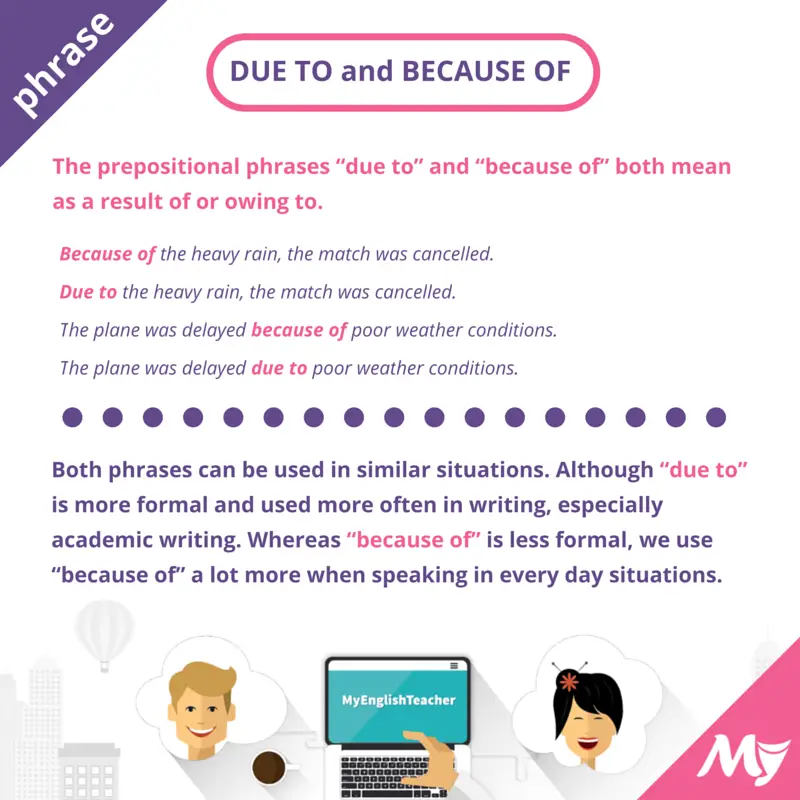Due to, Because of, As a result of
And are “as a result” and “consequently” common in speaking English?

The prepositional phrases “due to” and “because of” both mean as a result of or owing to.
For example:
- Because of the heavy rain, the match was cancelled.
- Due to the heavy rain, the match was cancelled.
- The plane was delayed because of poor weather conditions.
- The plane was delayed due to poor weather conditions.
Both phrases can be used in similar situations. Although “due to” is more formal and used more often in writing, especially academic writing. Whereas “because of” is less formal, we use “because of” a lot more when speaking in every day situations.
Here are more examples of the two phrases:
- Due to the lack of information the report was insufficient.
- The train service is delayed due to the strike.
- Due to your family medical history we recommend regular health exams.
- I drove to the party because of the rain.
- He can’t eat red meat because of his medical condition.
- Because of you I had to finish the project on my own.
“As a result” and “consequently” are more formal and more commonly used when writing, for example:
- an email
- a report
- an academic essay
The phrases are not restricted to writing however and can be spoken in more formal situations:
- by a doctor talking to a patient
- by a lawyer testifying on behalf of a client
- by a student presenting a project
Recommended for you:
What is the difference between ‘due to’ and ‘thanks to’?
15 Business English Idioms and Phrases In Use
Difference Between MISTAKE and ERROR!
The difference between cause and because ..


























